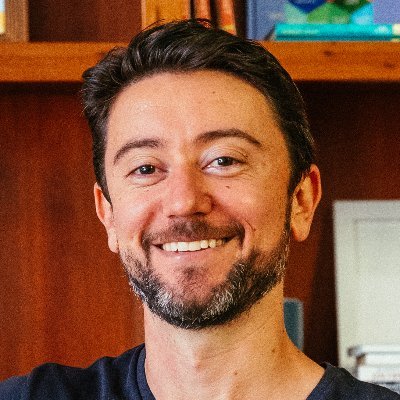Il modo in cui Binance ha operato è pazzesco:
- Riunioni giornaliere dei dirigenti alle 23:00, in modo che nulla sia stato bloccato per più di 24 ore
- KPI mensili nell'ordine dei trilioni di dollari
- Era normale avere 50+ riporti diretti, in modo che i singoli collaboratori non fossero mai a più di 1-2 livelli di distanza dal CEO
- Un'ossessione per il tasso di conversione dei più piccoli segmenti di utenti
- Mayur (CPO) ha letteralmente spostato la sua scrivania in quella squadra con il più grande vantaggio (o svantaggio) di 10 volte in quel momento.
- L'attività è passata da zero a 400 miliardi di dollari in 5 anni 😮
Mayur Kamat (@5degreez) is CPO at @n26, ex-Head of Product at @Binance, and built and scaled products at @Google (Gmail Mobile, Hangouts), @Microsoft, and travel unicorn @Agoda.
Mayur shares endless wild stories and a lot of unconventional product insights I've never heard before. There's something in this conversation for everyone.
Some of my biggest takeaways:
1. Binance’s leadership met every single day (often at 11 p.m.) so no decision waited more than 24 hours. Tight feedback loops beat elaborate planning.
2. Founder CZ kept about 55 direct reports so individual contributors were never more than one level away from the CEO. This forced leaders to live in the details and empowered ICs to “own the whole cell.”
3. Mayur literally moved his desk to whichever team had the biggest 10x upside—or downside—at that moment. Apply the same lens: growth and compliance issues usually move the needle fastest in fintech.
4. Treat “strategy” as a hypothesis pipeline: ship small, measure fast, double down on what the data proves. Tools like Statsig, Gemini summaries, and cohort dashboards make this possible at scale.
5. Work at companies that compound learning. High-growth environments (Google in the early mobile era, Agoda’s A/B culture, Binance’s hyperscale, N26’s pan-EU banking) give you daily reps and a powerful alumni network—worth far more than early salary bumps.
6. Optimize for your superpowers, not your gaps. Identify what energizes you—via StrengthsFinder-style assessments or honest reflection—and choose roles where those strengths decide success. Early in your career, ignore compensation differentials that don’t accelerate this fit.
7. Fast, reversible decisions beat “perfect” ones. In most product calls there’s no right vs. wrong—only slow vs. fast. Move quickly, learn, and pivot; reserve heavyweight processes for bets that could kill the company or the user.
8. Fintech creates exceptional PMs. Banking/financial products involve existential tradeoffs daily, requiring exceptional stakeholder management and decision-making skills.
Listen now 👇
• YouTube:
• Spotify:
• Apple:
Thank you to our wonderful sponsors for supporting the podcast:
🏆 @WorkOS — Modern identity platform for B2B SaaS, free up to 1 million MAUs:
🏆 @useparagon — Ship every SaaS integration your customers want:
🏆 @TrustVanta — Automate compliance. Simplify security:
194.656
348
Il contenuto di questa pagina è fornito da terze parti. Salvo diversa indicazione, OKX non è l'autore degli articoli citati e non rivendica alcun copyright sui materiali. Il contenuto è fornito solo a scopo informativo e non rappresenta le opinioni di OKX. Non intende essere un'approvazione di alcun tipo e non deve essere considerato un consiglio di investimento o una sollecitazione all'acquisto o alla vendita di asset digitali. Nella misura in cui l'IA generativa viene utilizzata per fornire riepiloghi o altre informazioni, tale contenuto generato dall'IA potrebbe essere impreciso o incoerente. Leggi l'articolo collegato per ulteriori dettagli e informazioni. OKX non è responsabile per i contenuti ospitati su siti di terze parti. Gli holding di asset digitali, tra cui stablecoin e NFT, comportano un elevato grado di rischio e possono fluttuare notevolmente. Dovresti valutare attentamente se effettuare il trading o detenere asset digitali è adatto a te alla luce della tua situazione finanziaria.

